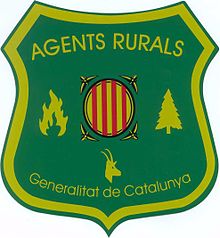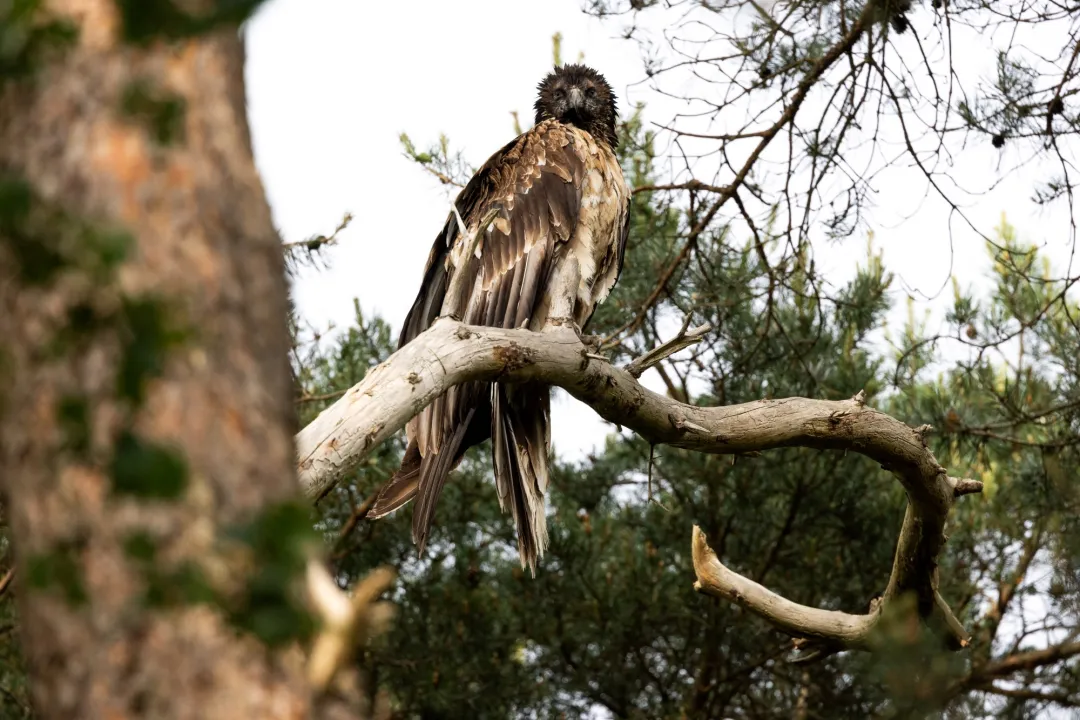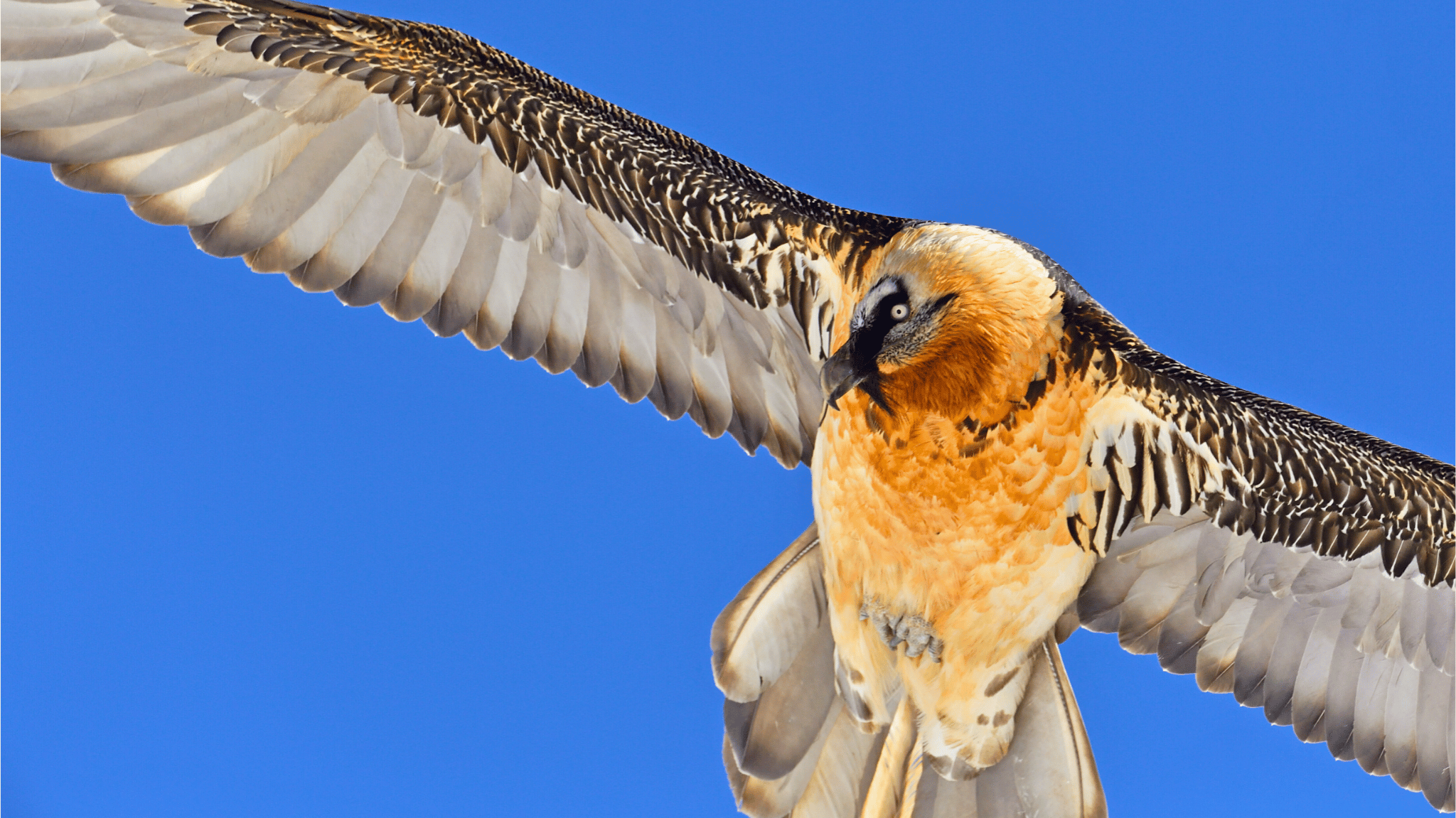
On the 12th January an adult bearded vulture was released back to the wild in Boí Valley (Spanish Pyrenees, province of Lleida). The bird has been found injured one month before at the same place and was successfully rehabilitated in the Centre de Fauna Vallcalent (Lleida), run by the Catalan regional government (Generalitat de Catalunya). The bird was equipped with a GPS transmitter to enable us to follow its movements.
The bearded vulture, in all likelihood a male, was found soaking wet in the banks of the Noguera del Tor river, near Barruera, by a fisherman, and brought to Vallcalent by the Agents Rurals (rangers). At first glance, the presence of several bruises and small injuries suggested a collision as the probable cause of its state.
At first, the bird was placed in a smaller cage in isolation to control its condition, but seeing there were no major injuries and considering the bird wasn’t eating, it was decided to move it to one of the larger cages of the bearded vulture captive-breeding unit, so that the bird could be surrounded by other bearded vultures. Just a few days after, the bird started eating by himself and his condition started to improve rapidly.
This technique is key in the rehabilitation of bearded vultures from the wild and it has been used very successfully at this centre. When a wild bird is brought into captivity, stress becomes a critical factor for its recovery, since they often stop eating and thus their condition quickly worsens. Being in the vicinity of other vultures and seeing them helps ease the stress caused by captivity, which has an immediate and positive effect on its recovery. All 6 birds that have been brought to the CFV since the bearded vulture breeding Unit was created in 2005 have survived thanks to this method: 3 of them could be released back to the wild while the other 3 were not suitable for release due to their injuries and have been added as breeders to the bearded vulture captive breeding network (EEP – European Endangered species Programme), managed by the VCF. One of these three birds included in the breeding network has already reproduced with success, leaving us three descendants before she died last September.
The recovery of this bird – and its tagging with a GPS tag – has been possible thanks to the close collaboration between the Centre de Fauna Vallcalent with other entities like Forestal Catalana, Vulture Conservation Foundation, the Agents Rurals (rangers), and the regional government of Aragón, through the nAragonese society of agro-environmental management (SARGA) and TRAGSATEC.















